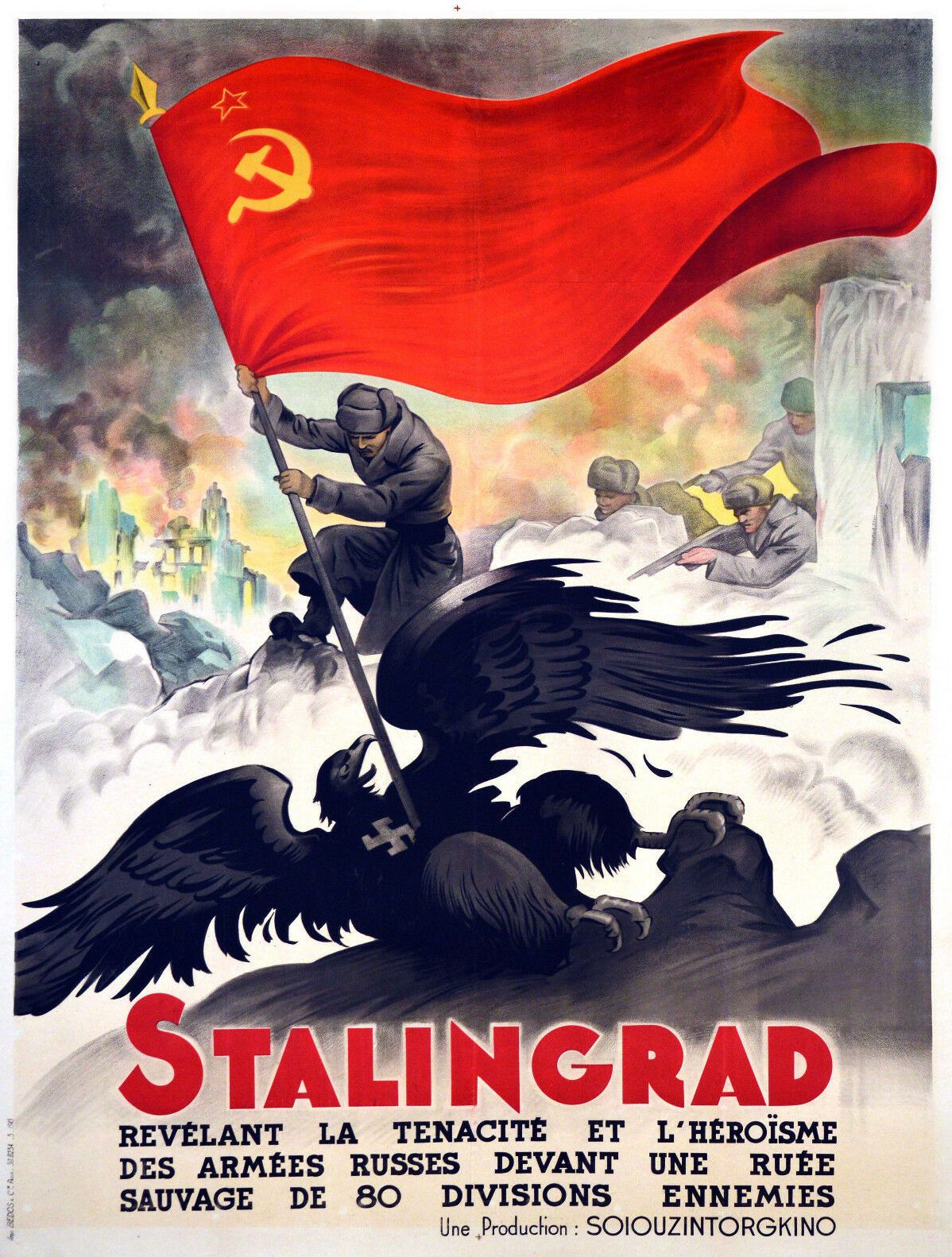80th Anniversary of Victory at Stalingrad
February 2, 1943
For Your Information
Soviet Union’s Great Patriotic War — Background
The Soviet Union’s Great Patriotic War (1941-45) refers to the war against Nazi Germany and its European allies during World War II.
The war broke out on June 22, 1941, when Germany, tearing up the mutual non-aggression pact between the two countries, launched a blitz offensive against the Soviet Union.
Before long, Nazi German troops and those from Finland, Romania, Hungary, Italy, Slovakia and Croatia occupied the entire territory of Lithuania and most of Latvia, and much of Belarus and Ukraine.
In October 1941, Germany started a ferocious attack on Moscow in hopes of quickly winning the war before winter. However, the Soviet Red Army put up a heroic and active defense, annihilating large numbers of Nazi German forces, and it won the battle in January 1942.
 On November 19, 1942, the Soviet forces launched a counteroffensive against the German troops in Stalingrad. On Feb. 2, 1943, the Red Army wiped out the last of the German main forces trapped and under siege in Stalingrad. The Nazi defeat in the Battle of Stalingrad threw Germany’s offensive on the Soviet Union into disarray, marking a turning point in the war against Nazi Germany.
On November 19, 1942, the Soviet forces launched a counteroffensive against the German troops in Stalingrad. On Feb. 2, 1943, the Red Army wiped out the last of the German main forces trapped and under siege in Stalingrad. The Nazi defeat in the Battle of Stalingrad threw Germany’s offensive on the Soviet Union into disarray, marking a turning point in the war against Nazi Germany.
Following up their victory at Stalingrad, the Soviet army liberated most of Ukraine and virtually all of Russia and eastern Belarus during 1943. In August 1943, the Germans were defeated in a battle at Kursk, Russia, and thus rendered incapable of launching any further strategic attacks.
In 1944, the Soviets launched an all-out offensive, liberating the rest of Belarus and Ukraine, most of the Baltic States and eastern Poland from Germany. By August 1944, Soviet troops had crossed into Germany. In mid-April 1945, the Soviet army launched its final assault on Germany and laid siege to Berlin on April 21.
On May 2, 1945, Soviet troops took Berlin. On May 8, Nazi Germany surrendered unconditionally.
(TML Archives)

|

|
[BACK]

